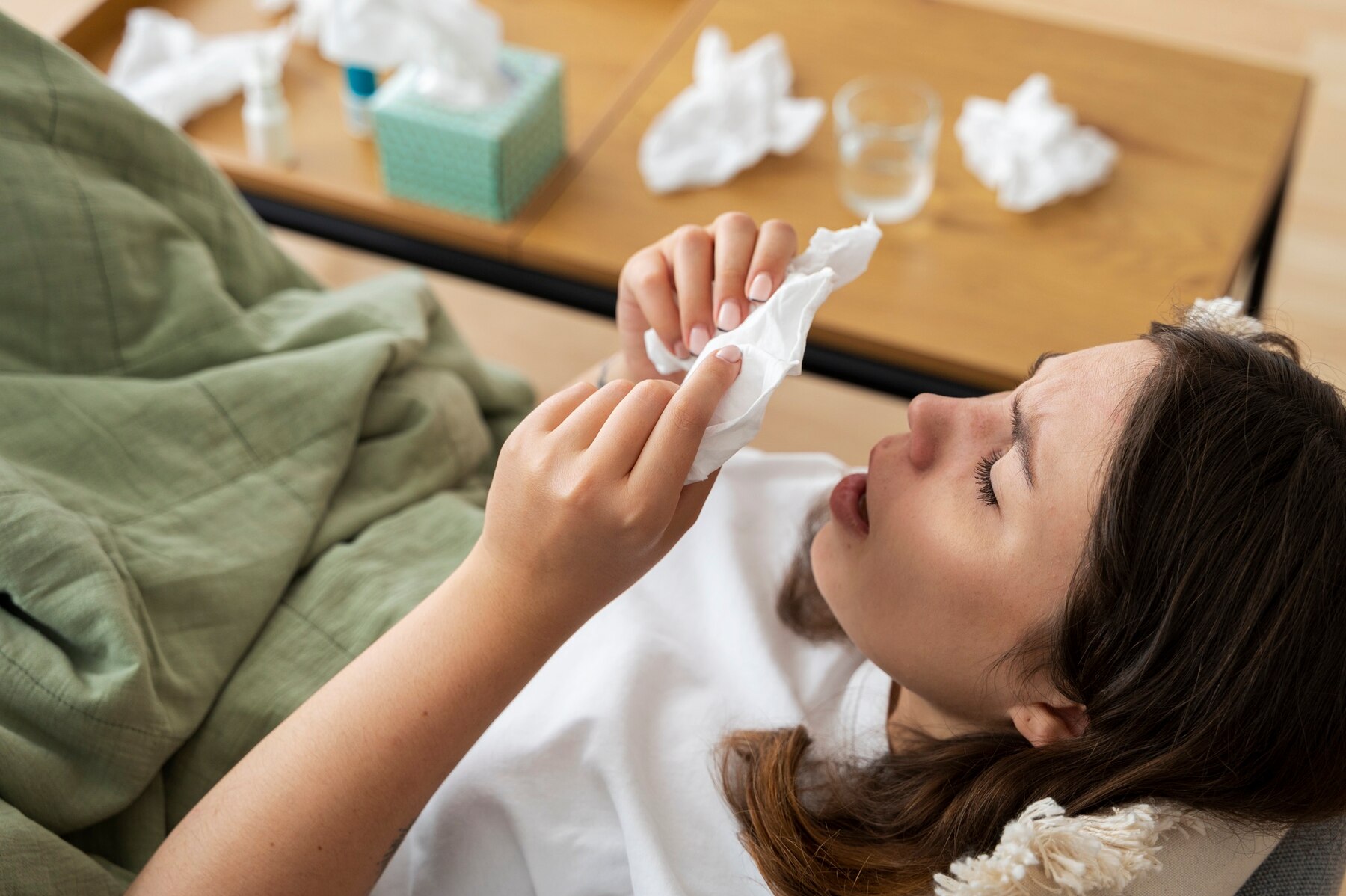
Acupuncture for Seasonal Allergies: A Natural Remedy on the Rise
It’s fall again, and for many of us, that means cozy sweaters, pumpkin-spiced everything, and the unwelcome return of seasonal allergies. If you’re one of the millions who struggle with sneezing, itchy eyes, congestion, or sinus headaches as the seasons change, you’ve probably tried just about every over-the-counter remedy available. Maybe you’ve found some relief with antihistamines, nasal sprays, or allergy shots, but for many, these solutions can bring their own set of problems—side effects like drowsiness, irritability, or even the concern of long-term medication use.
But what if there was a natural, effective way to relieve allergy symptoms that doesn’t involve medication? In recent years, more people have been turning to acupuncture as a remedy for seasonal allergies. Research suggests that acupuncture may not only alleviate the frustrating symptoms of allergic rhinitis but also provide a holistic alternative to traditional treatments, offering long-term relief with minimal side effects.
What Is Allergic Rhinitis?
Allergic rhinitis, commonly referred to as seasonal allergies, occurs when the immune system overreacts to allergens like pollen, dust, or mold. These allergens cause an inflammatory response in the nasal passages, leading to symptoms such as sneezing, congestion, runny nose, itchy eyes, and throat irritation. For some, these symptoms are mild, but for others, they can severely impact daily activities and overall quality of life.
According to epidemiological studies, the prevalence of seasonal allergies is on the rise worldwide, likely due to factors like pollution, climate change, and increasing pollen counts. As a result, millions of people find themselves relying on medications like antihistamines, decongestants, and corticosteroids to manage their symptoms. While these medications can be effective, they often come with drawbacks, including short-term relief, the need for continuous use, and potential side effects. This has led to growing interest in alternative treatments, like acupuncture, which can offer more sustainable and holistic care.
The Science Behind Acupuncture for Allergies
Acupuncture, a key component of Traditional Chinese Medicine (TCM), has been used for over 3,000 years to treat various ailments, including respiratory issues. So how does this ancient practice help alleviate modern-day seasonal allergies? Research suggests that acupuncture works by reducing inflammation, modulating the immune system, and promoting the release of
endorphins, the body’s natural painkillers. By targeting specific acupuncture points related to the respiratory system and immune function, acupuncture can reduce the inflammatory response triggered by allergens, thereby alleviating symptoms like nasal congestion, runny nose, and itchy eyes. A 2018 study published in the journal Annals of Allergy, Asthma & Immunology found
that acupuncture significantly reduced allergy symptoms and improved the quality of life for patients with allergic rhinitis. The study showed that acupuncture patients experienced a noticeable reduction in nasal and ocular symptoms compared to those who received sham acupuncture or no treatment. This suggests that acupuncture may not only treat symptoms but also have a lasting impact on overall allergy management.
Why Acupuncture Is Gaining Popularity
Acupuncture’s rising popularity as a treatment for seasonal allergies can be attributed to several factors. First, acupuncture offers a drug-free option for allergy sufferers. Many people are hesitant to rely on long-term medication, particularly given the side effects of some common allergy drugs, like drowsiness from antihistamines or nosebleeds from nasal corticosteroids. For
those who prefer to avoid pharmaceutical treatments or those who are pregnant, breastfeeding, or have underlying health conditions, acupuncture provides a natural alternative.
Second, acupuncture has a relatively low risk of side effects. When performed by a trained and licensed practitioner, acupuncture is considered safe. While some patients may experience minor bruising or soreness at the needle insertion sites, these effects are typically short-lived and much milder than the side effects associated with medications.
Additionally, acupuncture can address the root cause of allergies, rather than just masking symptoms. Conventional treatments like antihistamines work by blocking the body’s allergic response, but they do little to address why the body is reacting to allergens in the first place. Acupuncture, on the other hand, seeks to restore balance within the body and strengthen the
immune system over time, which may lead to fewer allergy flare-ups in the future.
Acupuncture vs. Conventional Allergy Treatments
One of the primary benefits of acupuncture over conventional allergy treatments is its holistic approach. Instead of merely treating individual symptoms, acupuncture aims to restore overall health and balance in the body, which can have far-reaching benefits beyond allergy relief. For example, many patients report that in addition to reducing allergy symptoms, acupuncture
improves their sleep, reduces stress, and boosts their energy levels.
In contrast, conventional treatments tend to focus solely on symptom management. Antihistamines, decongestants, and corticosteroids are designed to provide immediate relief, but they often require continuous use throughout the allergy season and may lose effectiveness over time. Furthermore, many allergy medications come with side effects, such as drowsiness, dry mouth, and an increased risk of infections with long-term steroid use.
Allergy shots, or immunotherapy, are another common treatment for chronic allergies. While effective for some, this treatment requires a significant time commitment, with regular injections over the course of several years. Acupuncture, by comparison, often requires fewer sessions to achieve long-term relief, and many patients begin to notice improvements after just a few
treatments.
How to Incorporate Acupuncture into Your Allergy Care
If you’re considering acupuncture for your seasonal allergies, it’s important to consult a licensed acupuncturist who has experience in treating allergies. Acupuncture is not a one-size-fits-all treatment—your practitioner will develop a personalized treatment plan based on your symptoms, medical history, and overall health. Typically, acupuncture treatments for allergies
are most effective when started before allergy season begins, as this helps strengthen the immune system and prepare the body for potential allergen exposure. However, even if you’re already experiencing symptoms, acupuncture can still provide relief. Many patients report that their symptoms become less severe and frequent after a series of treatments. For best results, acupuncture can be used in conjunction with other natural remedies, such as nasal rinses, herbal supplements, and dietary changes, to further reduce inflammation and improve immune function.
A Natural Solution for Allergy Relief
Acupuncture is becoming an increasingly popular option for those seeking relief from seasonal allergies without the side effects of conventional medications. By addressing the root causes of allergic reactions and promoting overall balance within the body, acupuncture offers a holistic approach to managing allergies that goes beyond simply masking symptoms. If you’re tired of
relying on medications to get through allergy season, acupuncture might be the natural solution you’ve been searching for.


